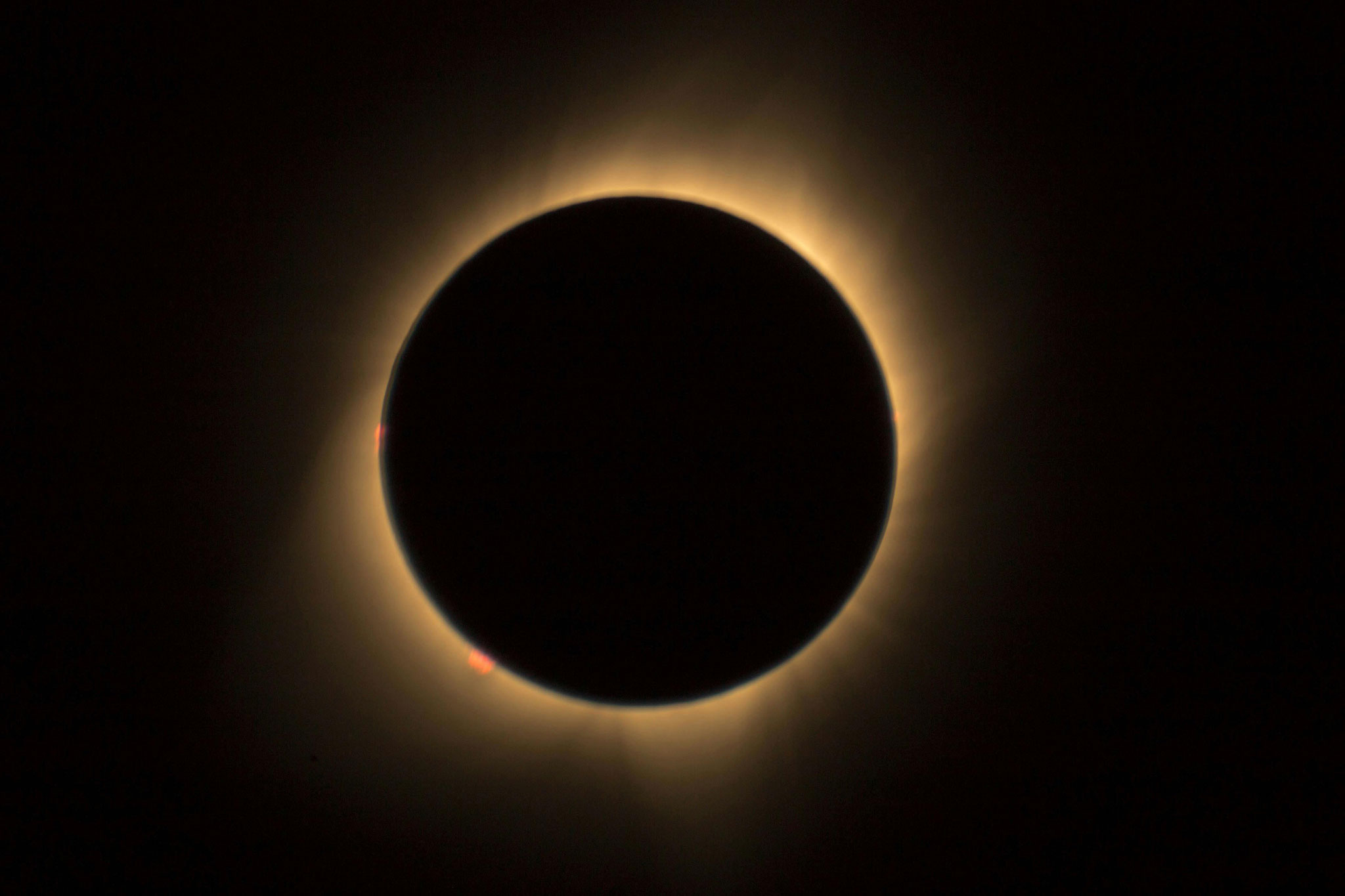The solar eclipse in Ontario can permanently damage your eyesight if no precautions are taken
Published April 3, 2024 at 1:06 pm

While everyone is excited about the upcoming solar eclipse, which will see a massive influx of visitors converging on Ontario towns (specifically Niagara Falls) located on the path of totality, a local doctor says viewers must take precautions to protect their eyesight during the rare event.
“Looking at the sun or any source of bright light without eye protection can cause damage to your retina,” Dr. Lili Tong, a surgical ophthalmologist at William Osler Health System, told insauga.com.
A total solar eclipse is a rare celestial event that always generates excitement, but next week’s version is expected to be unusually spectacular.
The April 8 eclipse that will occur over a large swath of North America, following a path that takes in parts of southern Ontario, Quebec and Atlantic Canada, comes as the sun’s magnetic activity is at the peak of an 11-year cycle. That means that during the brief period when the moon totally covers the sun, a show of streamers and magnetic loops will dance around the obscured sun.
The eclipse is set to cast a partial shadow in several parts of southern Ontario, while observers in Niagara Falls — as well as the nearby communities of Hamilton and Grimsby — can expect total darkness for about four minutes sometime between 2 and 4 p.m.
Tong says that looking directly at the sun (during an eclipse or any other time) could result in a condition called solar retinopathy, which occurs when the tissue at the back of your eye is damaged.
“Even if you look for a minute, you can cause damage in the back of the retina–the sensitive layer in the back of the eye that takes in information and brings it to the brain. The longer you look, the more damage you’ll take and this damage can be temporary or permanent,” she says.
Symptoms of solar retinopathy include blurred vision, particularly in the centre of your vision, and temporary or permanent sight loss.
Toronto Public Health says symptoms might not occur for 12 to 48 hours after exposure and that once they begin, it might be too late to reverse the damage.
“If you think you’ve caused damage to your eye, see an eye doctor. Sometimes it can clear up over a few weeks or months, but sometimes it can be permanent and blindness is possible,” Tong says, adding that one of her colleagues treated someone with permanent blindness from a sun-related injury.
Fortunately for eclipse enthusiasts, there are safe ways to enjoy the event without looking directly at the sun (experts say that when the moon completely blocks the sun, it is safe to look at the sun’s whitish corona with the naked eye, but looking straight at the sun itself is not safe at any time). Like many other experts, Tong encourages residents to pick up a pair of eclipse-safe glasses.
“As we get closer [to the eclipse], it’s harder to get glasses from reputable sources. Double and triple-check the vendor and make sure they meet the international standard of ISO123-12-2,” she says.
“They’re very hard to get right now, so be very careful while buying from a second seller. If you can’t get glasses or a filter, you can use an online streaming site such as NASA. You can also use a pinhole projector that can help you look safely without needing the glasses.”
Ultimately, Tong says the eclipse is a great opportunity to teach children not just about rare astronomical events, but also general sun safety.
“It’s a great educational moment. Know the risks and make sure kids know why they’re wearing the glasses. You should tell a child not to look at the sun in general. Small children’s eyes are more sensitive to damage, so make sure the glasses fit well so that kids don’t try to peek over their glasses.”
Tong also said it’s important to combat any misinformation about eclipse safety that young people might come across on social media.
“You get a lot of weird information and misinformation on social media, so use common sense and use a source of reliable advice for information, like a doctor,” Tong says.
“It’s hard to keep track of what kids are scrolling through, especially on TikTok. Misinformation can spread quickly. It’s never safe to look at the sun directly.”
Tong also says it’s not possible to “cheat” by pointing your phone directly at the sun and watching the eclipse on the screen.
“You can’t look at the sun through your phone, as that’s also unsafe and could potentially damage your phone. The sun will get around your screen, so it will be like looking at the sun directly.”
Experts also say it’s not safe to watch the eclipse through a window or basic sunglasses.
Tong says that by using proper glasses or watching the eclipse indirectly (such as online or with a device that allows you to look away from the sun), the event can be enjoyed safely. She also says that anyone who suffers from any visual symptoms after the event (or after viewing any bright light at any time) should see a doctor, just to be on the safe side.
“If you look at a bright light and suffer effects, see a doctor to see what’s going on.”
– With files from The Canadian Press
INsauga's Editorial Standards and Policies








